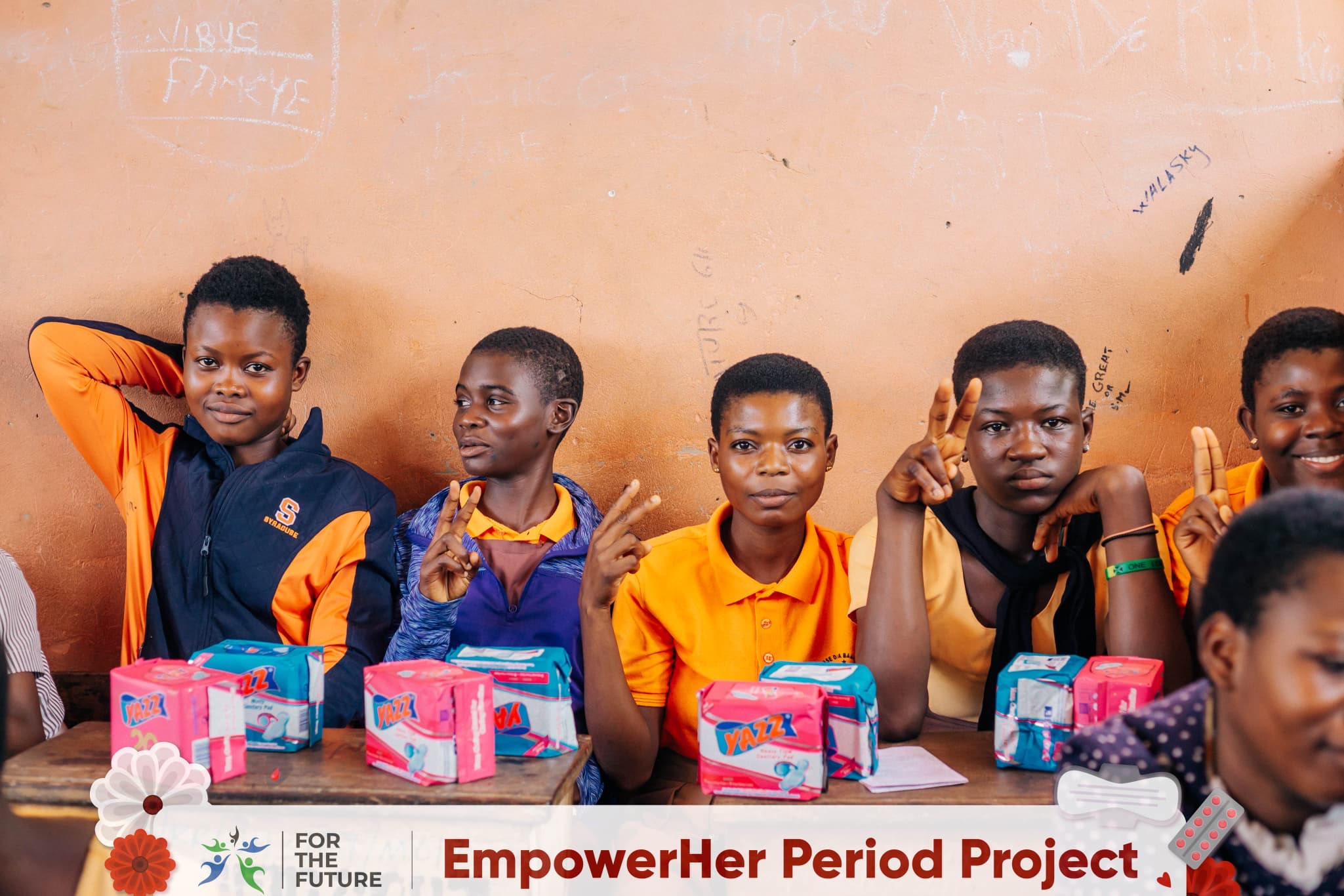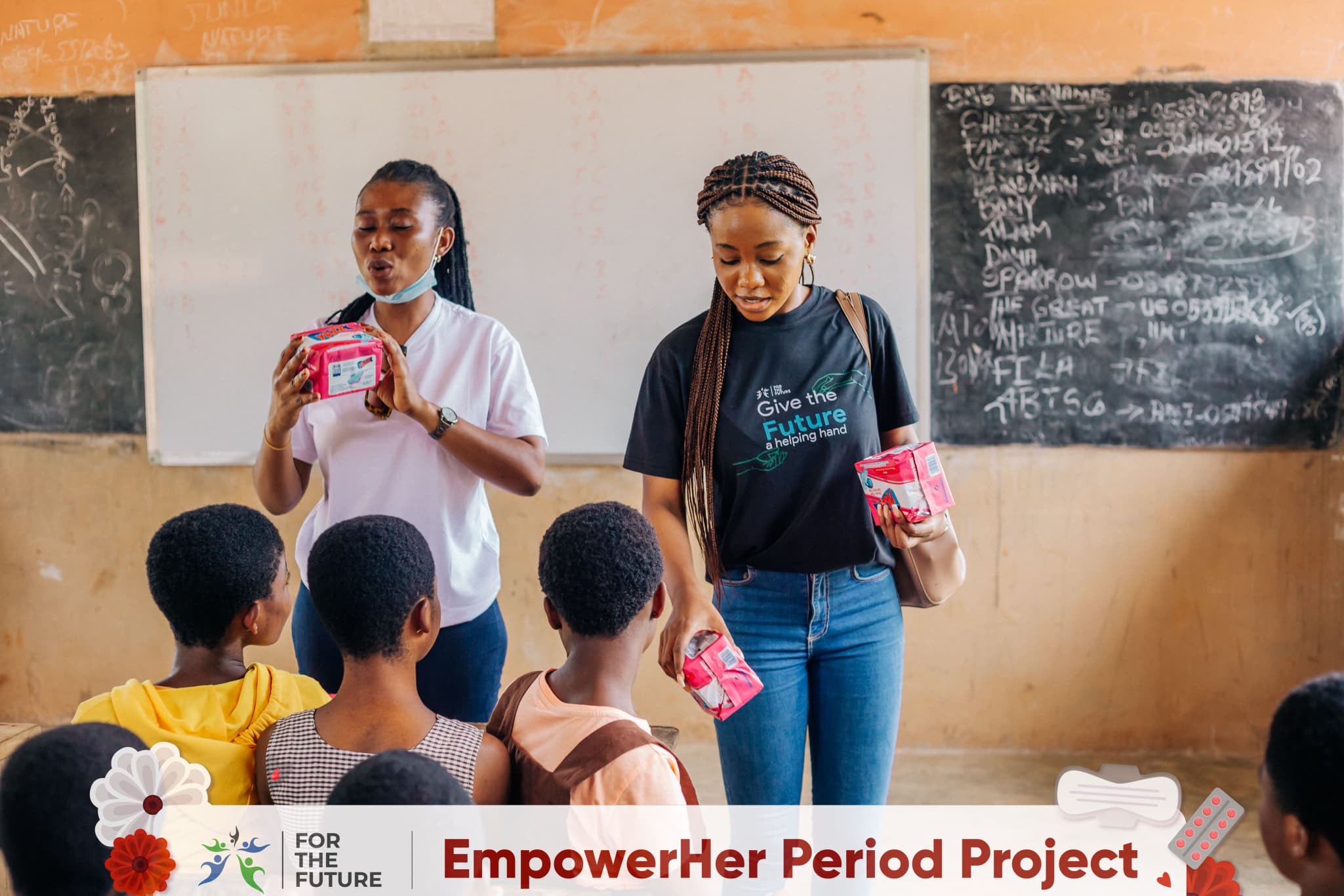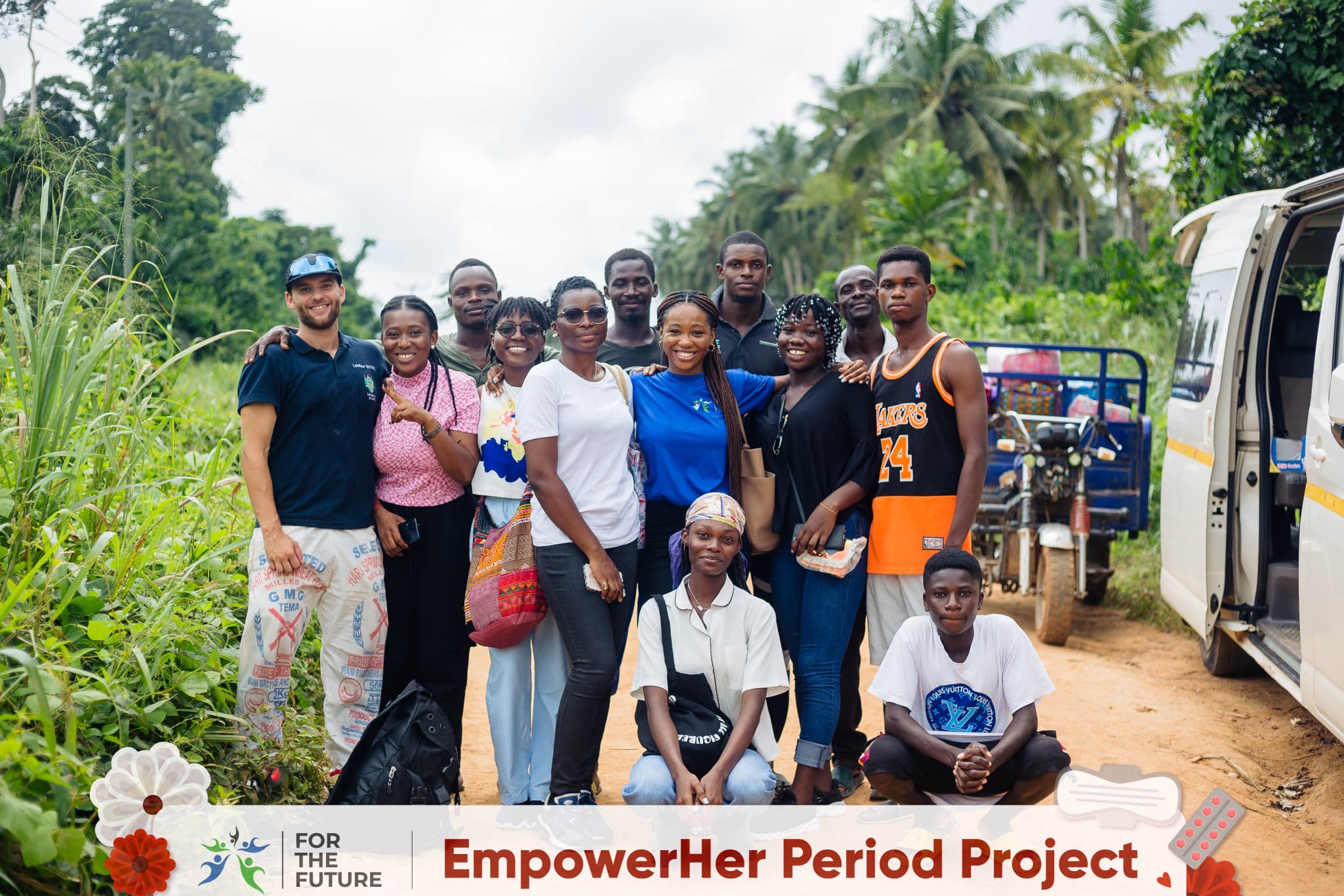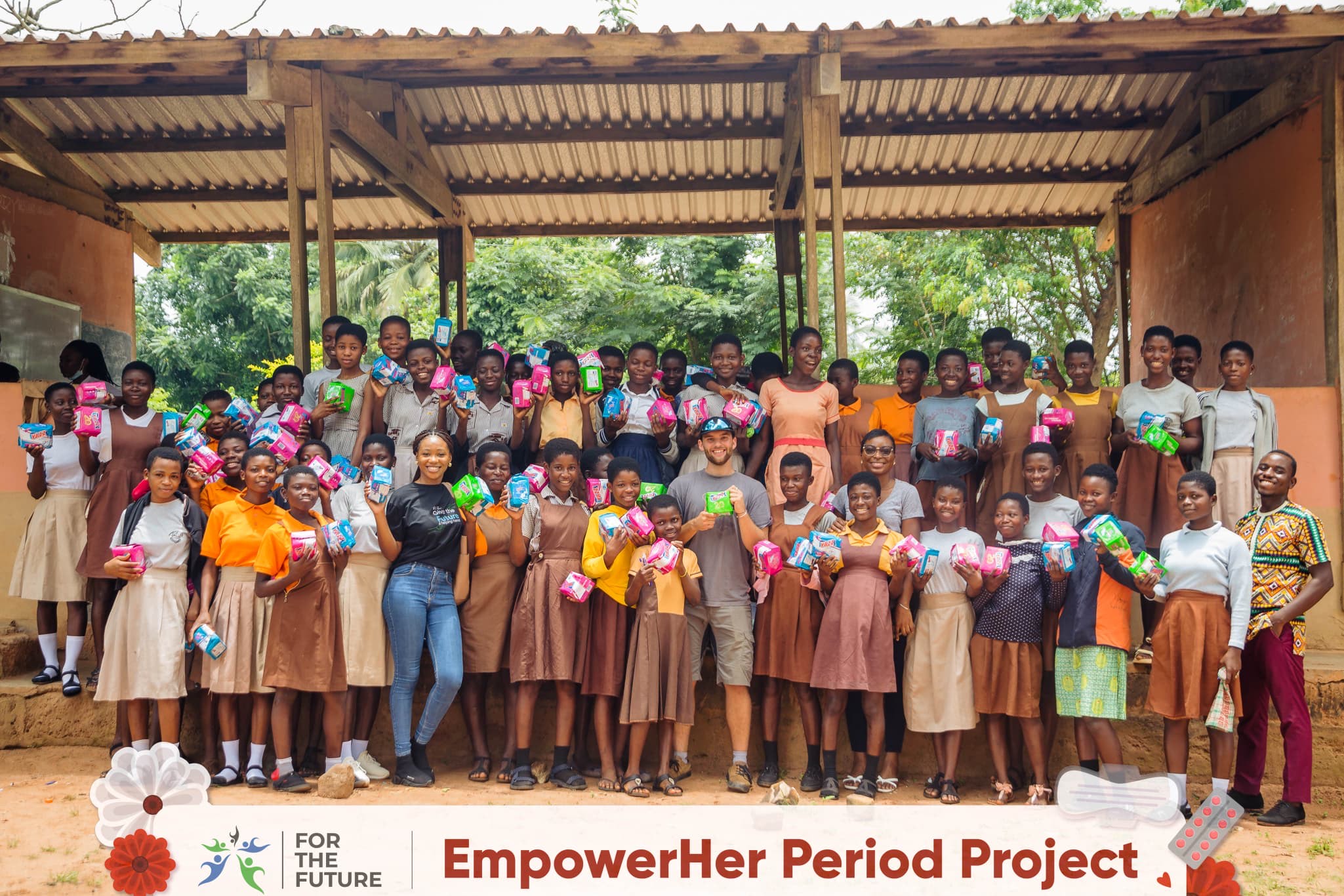Period poverty is prevalent and affects millions of women and girls worldwide and Ghana is no exception. Period poverty in Ghana is a multifaceted problem that encompasses both urban and rural areas. It is exacerbated by various factors, including poverty, cultural taboos surrounding menstruation, and limited access to menstrual hygiene products. Periods generally affect the physical and emotional wellbeing of the average girl child and the unavailability of affordable period care make “that time of the month” rather unbearable.
These push the average girl child in the village to resort to other means of obtaining menstrual products such sanitary pads by soliciting help from unscrupulous individuals who request sexual favours among others from them. The aforementioned is evidenced by recent statistics in the Central Region and other rural areas across the country.


Having recognised the urgency of the situation and the effects it has on the girl child, Martin Arthur; a researcher from Leeds University in the U.K. collaborated with For The Future Ghana on the Empower Her, Period Project. This project in a bid to combat period poverty and raise awareness about menstrual health featured the distribution of sanitary towels to schools and deprived communities and conducting a survey to gather information on period poverty and how best to alleviate the situation.
Many girls and women in Ghana resort to using unhygienic alternatives like rags which put their health at risk. In extreme cases those who cannot afford to constantly wash the rags absent themselves from school until the period is over hence affecting their school work.
The Empower Her, Period project recruited volunteers to aid with the distribution. The project spanned across the month of September and saw the team visit schools in the Greater Accra Region, deprived communities in the Bono and Central Regions and underserved schools in the Eastern Region.

Two thousand, seven hundred pads were distributed via the program. Besides distributing pads, the girls were taught how to use the pads i.e. putting it on and removing it and how long the pad must be worn. The aim of the project besides alleviating period poverty was to break the silence around menstruation, dispel myths and misconceptions and promote open conversations about menstrual health.
This empowered the beneficiaries of the project with knowledge about periods and the changes their bodies are undergoing. These we believe promote long term menstrual health and although not consistent, has introduced girls to alternative menstrual products.
Over all, the project was a huge success and For The Future Ghana looks forward to doing more and reaching more girls especially those in the remote areas however this will only be possible through consistent funding and logistics.
Through the Empower Her, Period project we believe For The Future Ghana and Martin Arthur have made strides in eliminating the stigma associated with menstruation and will continue working tirelessly to ensure that menstrual health is more accessible so no one has to suffer the dire consequences of period poverty.

